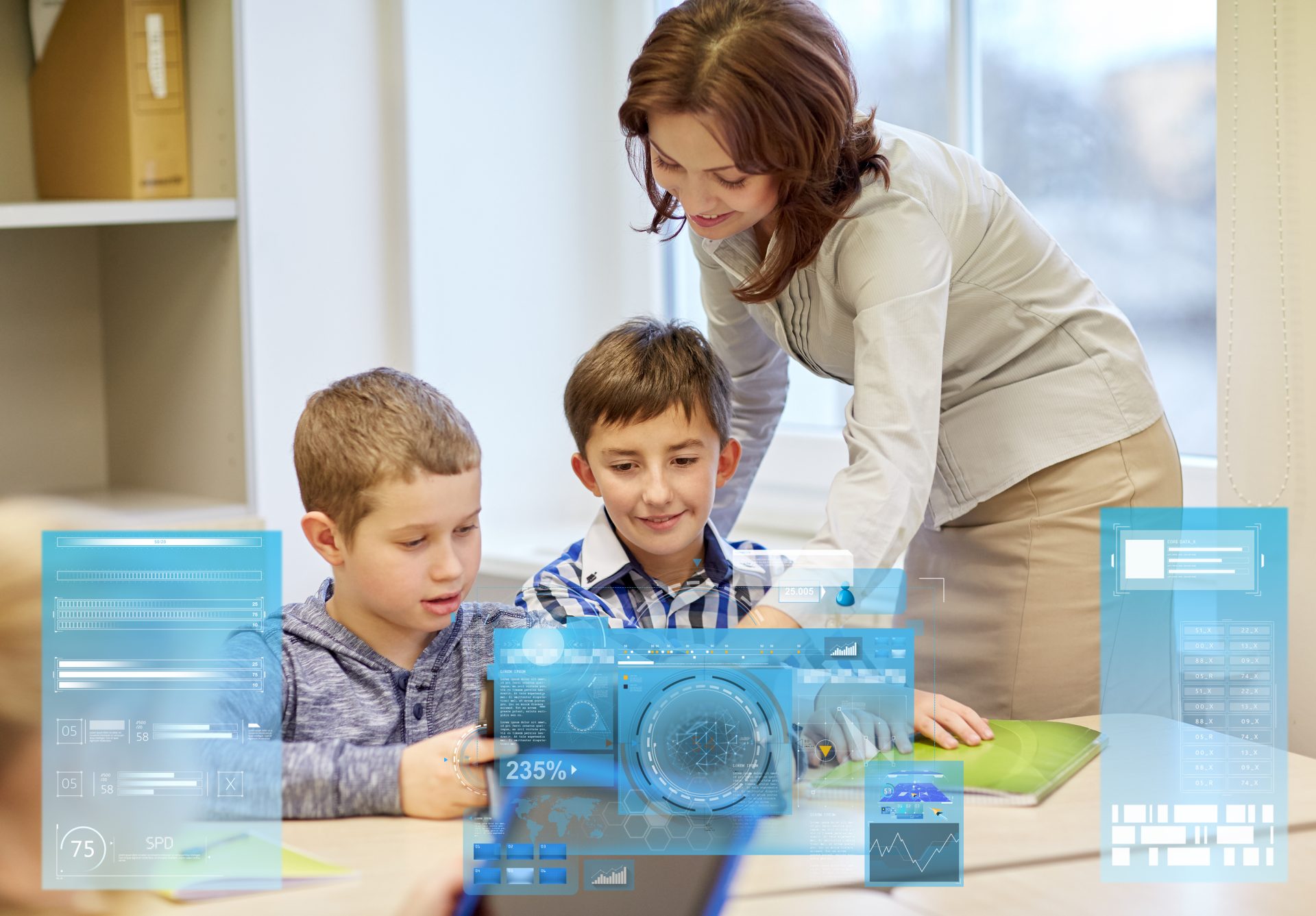Contents
Online elementary schools are gaining popularity. Virtual extracurricular activities in online schools have pros and cons not all parents understand. We will talk about extracurricular activities in online schools to help parents make the right choice for students.

Extracurricular activities are programs outside the regular academic curriculum. Extracurricular activities help students grow and build important skills. These skills include teamwork, leadership, communication, time management, and problem-solving. We will explain the types of extracurricular activities and how to choose the best ones for your child.
Extracurricular Activities: Online vs. Traditional Schools
Many parents don’t know how extracurricular activities in online schools differ from those in traditional schools. We’ll look at six key differences to help understand how online school activities work.
| CATEGORY | ONLINE SCHOOL | TRADITIONAL SCHOOL |
|---|---|---|
| Availability of in-person activities | Limited availability, mostly virtual clubs and independent projects | Wide range of in-person activities |
| Accessibility | Accessible from anywhere, no travel needed | Geographically limited, requires physical presence |
| Flexibility | Flexible scheduling | Set schedules, in-person attendance required |
| Cost | Generally lower, fewer physical resources needed | Higher costs due to equipment, travel, and materials |
| Skill development | Focus on digital skills and self-discipline | Emphasizes social, physical, and teamwork skills |
| Face-to-face social interaction | Limited, mostly virtual interaction | Usually in-person interaction |
| Participation options | Participation is individual or in remote groups | Participation is mostly in group |
Online schools offer mostly virtual activities with flexible scheduling and lower costs. Online schools focus on digital skills. Traditional schools have a wide range of in-person activities, set schedules, and higher costs. Traditional schools emphasize student’s social and physical skills with in-person interaction and group participation. Parents look at their child’s needs and family situation to choose the best extracurricular activities for them.

Virtual Extracurriculars and Student Growth
|
Parents, Take Note
The study “Impact of Extracurricular Physical Activity on Achievement of the Sustainable Development Goals and Academic Performance“ was conducted by Jorge Zarazaga-Peláez and colleagues. This study highlights these key findings:
These findings show how virtual extracurricular activities enhance academic success while supporting social and emotional growth.
|
Virtual extracurricular activities and clubs offer a dynamic approach to student development by extending learning beyond the classroom. This approach helps tailor activities to students’ needs. Let’s look at the main types of extracurricular activities and how they help students grow.
Types of Extracurricular Activities
Virtual extracurricular activities are divided into several types. Different types of extracurricular activities help students develop various skills. Programming-related activities enhance coding and problem-solving skills. Debate clubs develop social skills and public speaking. We will look at ten main types of virtual extracurricular activities.

Online Coding and STEM Clubs
Science, Technology, Engineering, and Mathematics (STEM) clubs give students opportunities to explore subjects like coding, robotics, and scientific experiments. These clubs help students develop problem-solving, critical thinking, and teamwork skills. Students engage in hands-on projects, connecting classroom knowledge to real-world applications. These activities prepare students for future careers in STEM fields.
Students join coding clubs to learn programming languages. These programming languages include Scratch, Python, Java, C++, and more. Coding clubs develop student’s problem-solving skills through interactive projects.
Legacy Online School has Coding and STEM Clubs.
Legacy Online School’s STEM Club supports academic growth by focusing on subjects like engineering, mathematics, and the scientific method. Students strengthen their understanding of complex concepts and gain practical skills through hands-on projects and real-world problem-solving. These skills help prepare them for future careers in STEM fields.
Legacy Online School’s Coding Club helps students build programming skills. Students participate in projects like app development or hackathons. These projects foster student’s critical thinking and problem-solving abilities.
Both clubs offer structured learning and let students connect with peers who have similar interests. This makes the student’s experience educational and fun.
Virtual Art and Creativity Classes
Virtual art and creativity classes allow students to explore different art forms like drawing, painting, and digital art from home. These classes guide students step by step, helping them improve their skills while encouraging creativity. Students share their work, get feedback, and connect with peers.
Legacy Online School has the Art Club. This club helps students explore their creativity by developing skills like artistic expression and creative thinking.
Virtual Sports and Fitness
Virtual sports and fitness programs allow students to stay active at home. These programs include guided workouts, yoga, and sports drills. These programs improve student’s strength, flexibility, and endurance. Instructors provide clear steps to ensure students do the exercises safely. Students set goals, track their progress, and even participate in virtual challenges with peers. This helps students stay fit, build discipline, and manage stress while learning online.
Debate and Public Speaking Clubs
Debate and public speaking clubs help students improve their communication and critical thinking skills. These clubs help students develop strong arguments, speak clearly, and present their ideas with confidence. Students get tips on how to use their voice, body language, and persuasive techniques to become better speakers.
Music and Performing Arts Clubs
Music and performing arts clubs give students the chance to explore music, acting, and dance. Instructors help students improve their skills and stage presence. Students learn to sing, play instruments, act, or perform in front of an audience. Students work on musical pieces, participate in plays, or prepare for virtual performances.
Foreign Language Clubs
Foreign language clubs help students practice and improve their language skills in a fun way. These clubs focus on learning new languages like Spanish, French, or Mandarin.
Students engage in discussions, play language-based games, and explore different cultures. Instructors and peers support students, offering feedback on language use. Some clubs include cultural events for students. These events include virtual trips or cooking lessons related to the language.
Legacy Online School has the Language and Culture Club. This club helps students practice new languages and learn about different cultures. Students develop skills like communication, critical thinking, and teamwork through interactive language activities. Students explore cultural traditions and history while improving their speaking abilities and connecting with peers.
Science and Nature Clubs
Science and nature clubs let students explore subjects like biology, ecology, and environmental science through fun, hands-on activities. Students take part in virtual experiments, nature observations, and projects, helping them learn about the world around them.
Chess and Strategy Games Clubs
Chess and strategy games clubs help students improve critical thinking and problem-solving through fun, challenging games. Students play chess, other strategy board games, and discuss tactics. These activities teach students to plan ahead, think logically, and adjust their strategies.
Book Clubs and Reading Programs
Book clubs and reading programs help students enjoy reading and improve their literacy skills. Students read books, talk about the stories, and share their thoughts with others. These discussions boost student’s comprehension and communication skills.
How to Choose Extracurricular Activities?
Parents need to understand how to help students choose the right extracurricular activities. Here are eight factors to consider when identifying which extracurricular activities are best suited for your child.

Consider Your Student’s Interests
Find out what your child enjoys, whether it’s technology, sports, art, or something else. Try these steps to find out what your child like:
- Pay attention to what your child talks about or spends time on.
- Talk to your child about their hobbies and what they like doing in their free time.
- Try out different activities together to see what excites them.
- Let your child participate in various activities to discover their preferences.
- Talk to specialists to find out your child’s interests. Organizations like the Child Mind Institute help with assessments and recommend suitable extracurricular activities.
Assess Strengths and Areas for Growth
Evaluate your child’s skills to help them find suitable extracurricular activities. Here’s how parents do this assessment:
- Pay attention to what your child excels at and where they need more support.
- Talk to teachers to get insights into your child’s strengths and areas for improvement.
- Use assessments to identify strengths and areas for growth. Try tests like StrengthsExplorer or Wechsler Intelligence Scale for Children (WISC-V) to assess students’ abilities.
- Consider consulting with educational psychologists or organizations like the National Institute for the Clinical Application of Behavioral Medicine (NICABM). These consultations help you get a more comprehensive assessment for your child.
- Encourage your child to try various activities to see where they show natural talent.
Balance Time and Schedule
“What I’ve come to realize is this: there is not a one-size-fits-all method of helping my children navigate their digital lives and maintain proper balance. For my family, the combination of the Circle and AT&T’s Smart Limits seems to be working”
Mark Chuhta, St. Luke’s School
Manage your child’s time to ensure they have a healthy mix of academic, extracurricular, and personal activities. Here are five tips to help parents balance their child’s time:
- Develop a daily or weekly schedule with time for schoolwork, extracurricular activities, rest, and leisure.
- Ensure the schedule includes time for relaxation. Downtime is essential for a child’s mental and physical well-being. Follow American Academy of Child & Adolescent Psychiatry guidelines to balance your child’s screen time.
- Determine which activities are most important and allocate time accordingly.
- Set limits on the number of activities your child participates in to avoid overscheduling.
- Review regularly and adjust the schedule based on your child’s needs and feedback.
Focus on Skill Development
Help your child build essential skills through targeted activities. Here’s how parents help their children get the right focus:
- Determine the specific skills your child needs to develop. These skills can include communication, problem-solving, teamwork, or leadership. Use American Psychological Association (APA) resources to better understand which skills to develop.
- Choose extracurricular activities aligning with these skills. Some parents pick team sports to build their child’s teamwork and leadership skills. Others choose music lessons to boost a child’s creativity, focus, and discipline.
- Make sure your child has opportunities to engage in activities promoting these skills.
- Monitor your child’s growth by keeping track of improvements in specific areas.
- Ask regularly teachers, coaches, or mentors for feedback about your child.
- Show interest in what your child is learning and offer constructive feedback.
Encourage Social Interaction
Help your child build social skills by interacting with peers, family, and the community. Here’s how parents foster social interaction:
- Encourage your child to join clubs, sports teams, or social groups to interact with others in structured settings.
- Arrange opportunities for your child to spend time with friends or classmates outside of school.
- Show your kids how to communicate effectively, listen to others, and resolve conflicts.
- Help your children join local activities to meet different people. Local activities include volunteering, joining clubs, and going to community events.
Choose Well-Structured Programs
Choosing well-structured programs is important for your child’s growth. Parents look for clear goals, qualified instructors, and a consistent schedule when evaluating a program. A good program is age-appropriate and provides a supportive environment for skill development. Parents reach out to school staff for guidance if they have questions or need help evaluating a program.
Balance Fun with Learning
Parents find the right balance between fun and learning to keep their children engaged. Parents mix structured time with unstructured free time, allowing kids to explore their interests. They adjust activities based on their child’s response to keep a balance between fun and learning without overwhelming them.
Try Trial Sessions
Trial sessions allow parents and children to experience an activity before committing. These sessions help determine if the activity fits the child’s interests and abilities.
Legacy Online School offers students one day of free education!
Conclusion
Virtual extracurricular activities help students grow in a balanced way. We looked at ten types of extracurricular activities and what to consider when choosing them. Picking the right extracurricular activities helps students succeed academically and personally. Parents use our tips to help students choose activities both useful and fun.











